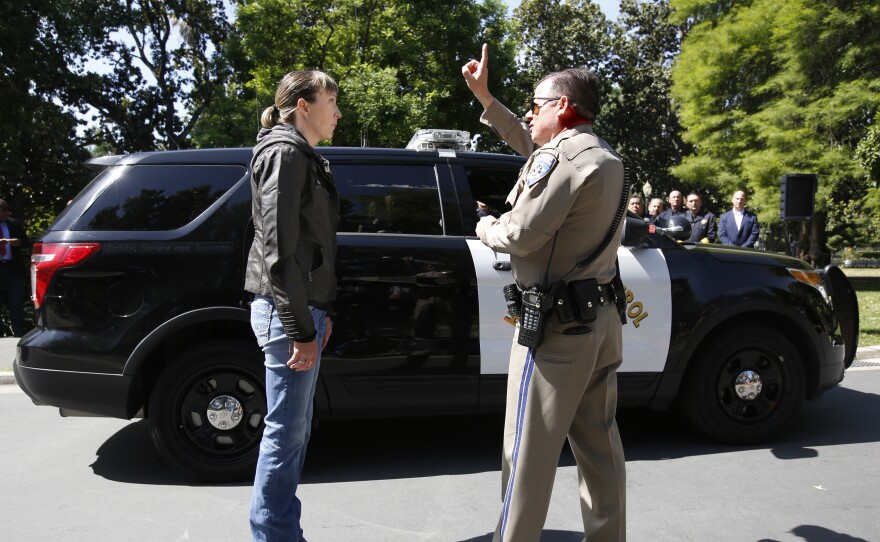The California Highway Patrol will intensify its policing of San Diego-area freeways and rural roads over the coming weekend as part of its annual effort to crack down on aggressive, distracted and intoxicated driving during the Fourth of July holiday.
The state agency's Independence Day "maximum enforcement period" is slated to begin at 6 p.m. Friday and conclude at 11:59 p.m. Monday, with all available officers focusing on preventing dangerous driving and traffic accidents.
"Fill the holiday weekend with celebration and fun activities, not reckless choices that lead to tragedy," CHP Commissioner Amanda Ray advised in a prepared statement.
During the comparable period last year, the CHP made 997 DUI arrests statewide, and 43 people died in crashes on California roadways. More than one-third of those killed in traffic crashes that weekend within the CHP's jurisdiction were not wearing seat belts, the agency reported.
Last year's stepped-up CHP Fourth of July enforcement efforts also resulted in the issuance of nearly 10,000 speeding tickets statewide.
"Give yourself plenty of time to reach your destination," Ray said. "Speeding not only endangers your life but (also) the lives of everyone on the roadway. ... Speed is the number-one factor in roadway crashes in California, causing one-third of the traffic-related deaths."
A report issued last month by the National Highway Traffic Safety Administration showed that the number of people killed in speed-related crashes is on the rise nationwide. According to the NHTSA data, 11,780 deaths in the United States were attributed to speeding last year, an increase of 5% over 2020.







